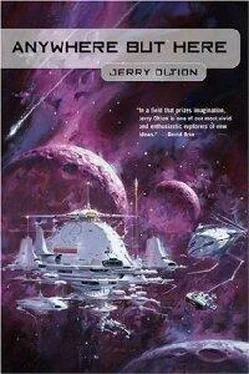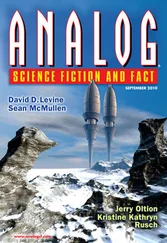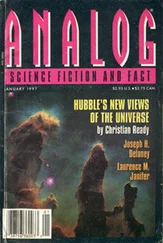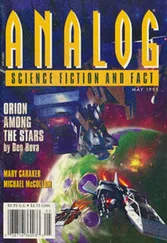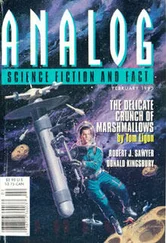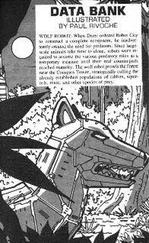“Oh, that,” he said. “It… kind of got put on a back burner.”
“I convinced him it was a bad idea to open too many frontiers at once,” Judy said. “Hand me that knife.” She pointed at a paring knife stuck to a magnet on the wall, and Allen handed it over to her.
While she sliced radishes, Trent said, “How about anti-gravity? That would come in pretty handy on landing. Be a lot safer than parachutes.”
Allen laughed. “It would, if I had a clue how to do it, but I’m afraid that’s not my area of expertise.”
Donna asked him, “Did you have a chance to look at that navigation program yet?”
He lost his smile. “Yeah. Turns out it wasn’t a bug so much as a deliberate bomb. The basic code is the same program that I gave out with the hyperdrive plans, but there’s an added module that looks for any visits to planets on the United States’s interdict list, and after you visit any of them, it resets the navigation module to add twenty thousand light-years to any destination you choose off the menu.”
Trent felt a cold chill run down his spine. “Then that’s twice our own government has tried to kill us.”
“Looks like,” Allen said.
“I don’t suppose the Federation is going to do anything about that, either?”
“No, but I will.”
“What?”
“I’ve got a couple of ideas,” said Allen. “Don’t worry, the government will wish they hadn’t tried this.”
Trent wondered what he could do. Allen had a considerably higher profile than Trent did, but Allen was a criminal in the eyes of the U.S. He’d been branded a terrorist, and could legally be shot on sight. Under the Patriot laws, he had no rights whatsoever. He couldn’t take anyone to court for messing with his software, even if he had patented it, which he no doubt hadn’t. Whatever he did, he would have to do it from outside, and unless he wanted to declare all-out war, Trent was willing to bet it would have no more effect than the myriad other economic and political sanctions the U.S. had endured over the years. The U.S. wouldn’t change its tactics until it changed its politics, and now that the dissidents were leaving for more tolerable lives elsewhere, the odds of that happening were practically nil.
They changed the subject after that, and by dinnertime they were laughing and joking as if everything was all right. They learned why there was a dining table—it was much easier to strap yourself down and stick your plate to a solid surface than to chase it around the room—and they learned how to pass dishes around without spilling them. Judy and Allen told stories about some of the more interesting aliens who had been discovered in the last few months, and Trent and Donna told about being stranded on the plastic planet and how they had built a generator out of a wheel motor and slo-mo shells to recharge their batteries. After dinner they moved into the living room and talked for a couple more hours, but eventually Trent realized Judy had yawned about half a dozen times in as many minutes, and Allen was starting to space out even more than usual.
“Hey,” he said. “We’re keeping you guys up. What time is it around here, anyway?”
“Past midnight, for us,” Judy admitted.
“Holy cow. Sorry about that! We’ve only been up for a few hours.”
“The station never sleeps,” Allen said. “You can find plenty of things to do at any hour.”
“Thanks,” Trent said, “but I think Donna and I are about done sightseeing for a while. I’m kind of thinking it’s time to go on home. How about you, kiddo?”
Donna nodded. “I’d kind of like to sleep in my own bed tonight.”
That wasn’t likely, given that they would have to land in Canada and drive home from there, but Trent didn’t say anything. Just setting down on Earth again would be close enough for starters. Thinking of which…
“Hey,” he said, “we’re going to need our computer if we’re going to go anywhere.”
Allen slapped himself on the forehead, then got the computer from his workshop and gave it to Donna. They spent another fifteen minutes at the door the way people always seem to do when they know they won’t see one another again for a while, but Judy yawned again in the middle of a story about a cat that loved to set itself adrift in the commons and let the birds fly all around it, and Donna laughed and said, “Will you people go to bed so we can go home?”
“Right,” Judy said. “Bedtime it is. You guys take care, and keep in touch.”
They said their goodbyes, and Trent and Donna pushed off down the corridor. When they got to the central atrium, Trent saw the shops and said into his arm speaker, “Hey, is there someplace we can buy a spare parachute around here? We’re down to just one, and I get nervous trying to land without a backup.”
Potikik guided them to a shop right next to the corridor that led to the docking bay, where they found hyperdrives, plasma batteries, portable solar cells, air tanks, and all the other equipment a person might need to build or repair a hyperdrive spaceship, including parachutes. The proprietor was a spidery yellow bug about nine feet tall who didn’t speak a word of English, but Potikik helped translate for them and they found a cargo chute big enough for a loaded pickup.
“How much?” Trent asked.
“How much do you have?” the bug replied through Potikik.
“No, that’s not the way it works,” Trent said. “You tell me how much you want, and I tell you whether or not I want to pay it.”
The bug spoke at length, and the shoulder speakers said, “Peculiar. Basic economic theory predicts the development of class stratification if goods are priced without regard to the user’s ability to pay. It would lead to excess and oppression, possibly even war.”
Trent looked over at Donna, who said, “He’s got you there.”
“Okay,” said Trent. He fished out his wallet and opened it up. The five orange twenties that Greg had given him on Onnescu were right up front. “I’ve got a hundred bucks Australian, and about sixty American.”
“And how badly do you need the parachute?” asked the bug.
“We can live without it,” Trent said.
“How many other purchases do you need to make before you replenish your money?”
“God only knows,” Trent said. “I’m still lookin’ for work.”
The bug turned to an abacus-looking gadget on the counter beside him and flipped a couple of colored balls around its wire loops, then said, “For you, then, seventy-two Australian will do.”
That was actually a lot cheaper than he could buy a cargo chute at home. “Okay,” Trent said. He handed over eighty, and the bug handed him back three oblong yellow coins with little swirly galaxies stamped on them.
“Federation currency,” the bug said. “Good anywhere.”
“Right,” Trent said. He somehow doubted that they would be worth much in the good old US of A, but they were certainly worth no less than his remaining Australian twenty.
He picked up the parachute and followed Donna out into the atrium and down the corridor toward their docking bay. They stopped to collect their clothes from the guest room, and Donna packed those in the camper while Trent made sure the parachute was folded right and packed it into its pod.
The tug pilot showed up while he was doing that, so they clipped their mobile speakers to the tug’s framework again, then donned their Ziptite suits and climbed into the pickup. Trent closed the door, then looked out at the mirrors still pointing backward for driving. “This time,” he said, opening the door again and adjusting his mirror so it pointed straight down.
“My god, we remembered,” Donna said, opening her door and adjusting her mirror, too.
Читать дальше
